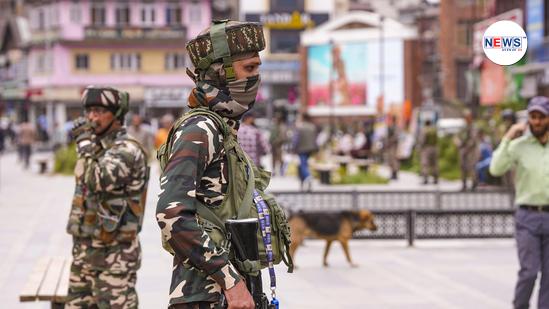
Activate air raid sirens, rehearse blackout, safety drills: Govt to north, west states, UTs
With the Line of Control hotting up and tensions soaring over a likely Indian military response to the Pahalgam terror attack, the Centre Monday directed northern and western states and Union Territories to test and strengthen civil defence mechanisms in the event of a hostile attack.
The Ministry of Home Affairs asked the states and UTs, including J&K, Punjab, Rajasthan and Haryana, to conduct mock drills on May 7.
Sources said states and UTs have been asked to operationalise air raid warning sirens, implement crash blackout measures in selected areas and train civilians, including students, on safety protocols to follow during an aerial or ground assault.
Other key measures include conducting rehearsals of evacuation plans and early camouflaging of vital installations such as power plants and military-linked infrastructure.
Sources said these directions are aimed at enhancing the preparedness of the civilian population and the administrative machinery.
The instructions were issued even as a series of high-level meetings continued in the Capital.
Defence Minister Rajnath Singh met his Japanese counterpart, General Nakatani San, while Defence Secretary Rajesh Kumar Singh held a meeting with Prime Minister Narendra Modi.
At the bilateral meeting with Japan, the two sides condemned terrorism in all its forms and emphasised the need for enhanced collaboration and joint efforts to counter cross-border threats.
According to a government statement, Singh condemned Pakistan’s state policy of cross-border terrorism against India, perpetrated through state and non-state actors.
Stating that such attacks destabilise regional peace and security, he called for a unified stand against terrorism and the state-sponsored actions that perpetuate it.
While Singh underlined that India shares a special, strategic and global partnership with Japan, General Nakatani expressed solidarity with India in the wake of the Pahalgam attack and offered full support to India.
The two ministers reaffirmed their commitment towards strengthening bilateral relations and contributing towards regional peace.
In the backdrop of China’s expanding military presence in the Indo-Pacific, the statement mentioned that “both leaders agreed to add new dimensions to the robust maritime cooperation between India and Japan”.
According to official sources, Singh, while pointing out the impact of cross-border terrorism on multiple countries, also highlighted Pakistan’s nuclear programme. He is learnt to have advised General Nakatani against investing in Pakistan-occupied Kashmir to prevent any possibility of funds getting used for terror activities in future.
He also outlined the capability of the Indian defence industry, particularly its potential to collaborate with the Japanese on new areas, including tank engines and eero engines, and highlighted the capabilities in the areas of Maintenance, Repair and Overhaul operations.
“Both sides agreed to enhance industry cooperation, including exploring collaboration in niche domains such as automation and Artificial Intelligence. The two Ministers also decided to take forward the cooperation in emerging areas like cyber and space,” the statement said.
Meanwhile, Defence Secretary R K Singh met Prime Minister Modi and was said to have discussed critical policies and purchases concerning the armed forces as the military establishment weighs its retaliatory options.
The Defence Secretary is responsible for the defence budget, various policies and procedures and rules concerning defence matters. Critical acquisitions for the military also come under the Defence Secretary.





